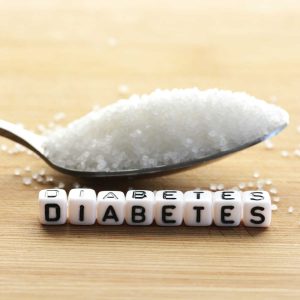The Dangers of Missing Teeth and How To Avoid Them
Tooth loss is a common cause of aesthetic distress for many people, but missing teeth can affect far more than just the appearance of your smile. The dangers of missing teeth are highly varied, ranging from gum disease, to low self-esteem, and even heart disease.
Fortunately, our Turlock implant dentist, Dr. James Eggleston of Eggleston Dental Care offers dental implants as an effective way to prevent the dangers of missing teeth. If you’re missing teeth, schedule an appointment with Dr. Eggleston by calling us at 209-226-4963.
The Oral Health Dangers of Missing Teeth
Mesial Drifting
Mesial drift or tooth drifting occurs when your teeth shift out of place trying to fill the space Some tooth drifting is normal and may be unnoticeable, but in cases of post-tooth loss, tooth drifting can lead to:
- Gum sensitivity and tenderness
- Overcrowding
- Teeth not aligning when biting (malocclusion)
- Weakened teeth
- Further misalignment
- Susceptibility to further tooth loss
Painful Eating 
When you’re missing teeth, eating can become painful. Missing teeth means your gums and remaining teeth will have to take the leftover pressure those missing teeth were responsible for.
This causes additional wear and tear on your teeth and gums, leading to possible:
- Soreness
- Bleeding
- Irritation
- Infection
- Temporomandibular joint dysfunction or TMJ
Resorption
When your jawbone doesn’t get the nutrients it needs to reinforce itself, your body begins to reabsorb the bone in that area. This process is called resorption and if it’s not addressed, serious loss of jawbone density can occur.
Your jawbone is continuously strengthened by stimulation of the roots of your teeth. When you chew, signals are sent to the roots of your teeth that encourage the body to send nutrients to that area. Anywhere a tooth is missing, the root of your tooth won’t be stimulated.
Loss of jawbone density can:
- Make it harder to receive dental implants
- Weaken the rest of your teeth
- Distort the shape of your face
- Encourage wrinkles
TMJ (Temporomandibular Joint Disorder)
When teeth are missing, the remaining teeth may shift or tilt, altering the natural bite pattern. This misalignment can lead to overexertion of the temporomandibular joint and surrounding muscles as they attempt to compensate for the changes. Over time, this added stress on the TMJ can result in discomfort, pain, and even TMJ disorders.
Restoring missing teeth through dental implants or other means helps maintain proper jaw alignment, reducing the risk of TMJ-related problems and promoting overall oral health.
Increased Risk of Tooth Decay
When a tooth is lost, it leaves a gap where bacteria can accumulate more easily, as it becomes challenging to clean the area effectively. These bacteria can produce acids that weaken the adjacent teeth, making them more susceptible to tooth decay. Additionally, the shifting of neighboring teeth in response to the gap can create tight spaces and crevices that are difficult to clean, further increasing the risk of plaque buildup and decay.
The Overall Health Dangers of Missing Teeth
Digestive Issues
Digestion begins in your mouth, where food is chewed and exposed to saliva. Missing teeth impair digestion by making it harder for you to chew food and produce saliva. Chewing that’s impaired by tooth loss can lead to:
- Lack of nutrition
- Indigestion
- Damage to the stomach lining
- Dehydration
- Increased risk of choking
Gum Disease and Diabetes
Tooth loss significantly contributes to the development of gum disease, a severe infection that can harm the gums and the supporting bone structure around your teeth. Gum disease also contributes to the development or worsening of diabetes. It can make it challenging to maintain stable blood sugar levels, as the infection triggers inflammation and stress on the body. It can also exacerbate tooth loss, further complicating oral health.
Individuals with missing teeth often face difficulties in maintaining a balanced diet. This challenge arises from their struggles with chewing tough, nutritious foods, which can lead them to opt for softer, often higher-sugar, and calorie-rich alternatives. This can contribute to weight gain, a well-established risk factor for the development of type 2 diabetes.
Dementia or Alzheimer’s
The connection between tooth loss and an elevated risk of dementia and Alzheimer’s disease is multifaceted. Missing teeth hinder effective chewing and proper nutrition, potentially leading to nutrient deficiencies crucial for overall brain health. Poor oral health can trigger chronic mouth inflammation, impacting systemic well-being and potentially increasing the risk of cognitive decline.
An Indicator of Worsening Overall Health
The implications of missing teeth extend beyond oral health, such as tooth loss can signal broader health concerns in your body. Conditions affecting your bones, immune system, and cellular well-being can heighten the risk of tooth loss.
Some of these conditions include:
- Osteoporosis
- Diabetes
- Rheumatoid arthritis
- Hypertension
- Heart disease
While tooth loss may not always indicate more severe problems, it should never be ignored. Timely restorative care not only prevents additional oral health issues but also facilitates the identification and planning of treatment for any underlying causes.
Dental Implants: The Best Solution to Tooth Loss
Dental implants are the best way to treat and prevent the dangers of tooth loss. There are various benefits that accompany dental implants. Contact our Turlock dentist today at 209-226-4963 to schedule your consultation.
Maintains Jawbone Density
Dental implants act as artificial tooth roots, stimulating the jawbone just like natural teeth when chewing. This prevents the bone from resorbing or deteriorating, which is a common issue when teeth are missing.
Prevents Shifting of Adjacent Teeth
The gap left by a missing tooth can cause neighboring teeth to shift or tilt into the space, disrupting the natural alignment of your smile. Dental implants fill this gap, keeping adjacent teeth in their proper positions.
Restores Proper Chewing Function
Dental implants provide a stable and functional biting surface, allowing you to chew and eat a wide variety of foods without difficulty. This is crucial for maintaining good nutrition and overall health.
Enhances Aesthetics and Confidence
Implants are designed to look and feel like natural teeth. They blend seamlessly with your smile, restoring its appearance and boosting your confidence in social and professional settings.
Long-Lasting and Durable Solution
Dental implants are known for their longevity. With proper care, they can last a lifetime, reducing the need for frequent replacements compared to other tooth replacement options like dentures or bridges.
Supports Overall Oral and Systemic Health
By addressing the physical and functional aspects of missing teeth, dental implants help maintain your oral health. Additionally, a healthy mouth is linked to improved systemic health, reducing the risk of associated diseases like heart problems and diabetes complications.
Frequently Asked Questions
What are the financial implications of not addressing missing teeth?
Are there age-related risks associated with missing teeth?
How do I prevent the dangers of missing teeth?
How soon after losing a tooth do the issues start?
Avoid The Dangers of Missing Teeth With Dr. Eggleston, Call Today!
Dr. Eggleston and his team at Eggleston Dental Care are ready to help you treat and prevent further tooth loss. Call our Turlock office at 209-226-4963 or fill out and submit the online contact form below. Learn more about how we can help patients from Turlock and surrounding areas such as Keyes, Denair, and Hatch, CA maintain a healthy, confident smile.

